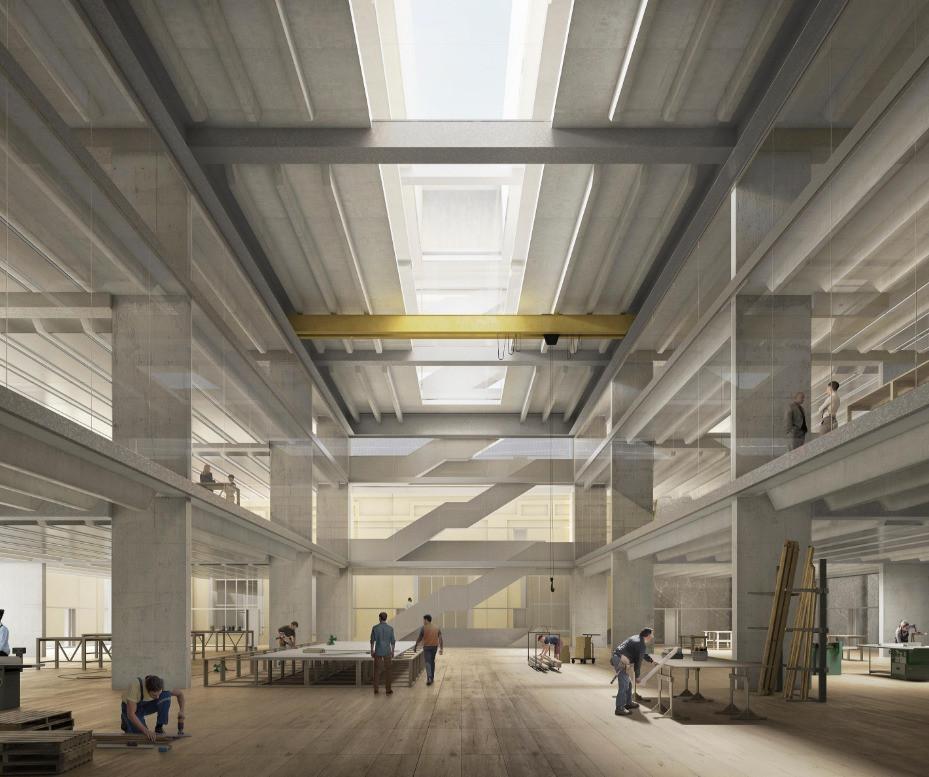Salzburg Festival sold out while others struggle to regain audience
SALZBURG

People fill the cobblestone streets of the city where Mozart was born, rushing to 213 performances over six weeks. While many classical music institutions struggle to regain audience, the Salzburg Festival is on track to draw people from over 75 nations to opera, concerts and drama.
“We played through the pandemic,” said Kristina Hammer, who took over as the festival’s president in 2022. “That made us not only a spotlight in Europe for culture, but we didn’t lose our customers.”
There are 179 performances over 43 days through Aug. 31 at 15 venues plus 34 youth performances. Highlights included new stagings of Mozart’s “Le Nozze di Figaro,”Verdi’s ‘Macbeth” and “Falstaff” and Bohuslav Martinu’s rarely seen “The Greek Passion” along with Gluck’s “Orfeo ed Euridice,” held over from this year's Whitsun Festival.
Artists in a program of unmatched depth include pianists Igor Levit, Pierre-Laurent Aimard, Evgeny Kissin and Daniil Trifonov, and the Vienna and Berlin Philharmonics headline concerts along with the Boston Symphony Orchestra.
“There are these hidden threads,” artistic director Markus Hinterhauser said, drawing parallels between “Macbeth” and the Ukraine war, “Greek Passion” and the migrant crisis and “Figaro” with class struggle. “What I can do is to give the audience the kind of navigation system without being didactic.”
Director Max Reinhardt, composer Richard Strauss and dramatist Hugo von Hofmannsthal founded the festival to promote peace following World War I, an idea they are said to have formed at Reinhardt’s nearby Schloss Leopoldskron.
Herbert von Karajan dominated as artistic director from 1956-88. Gerard Mortier overhauled programming from 1991-2001 and was followed by Peter Ruzicka and Jürgen Flimm. Hinterhauser, a pianist. ran the festival for a year in 2011 before Alexander Pereira began, then took over in 2016 and has a contract running until September 2026.
Venues are spread across both sides of the Salzach River in a city of about 150,000 crammed with restaurants, hotels and luxury boutiques, with the three largest halls carved into the Mönchsberg mountain.
Top offerings are televised and quality is high, though there has been criticism there should be more contemporary music.
Teodor Currentzis, the conductor whose musicAeterna has been excluded from the U.S. and much of Europe over its partnership with Russia’s state-controlled VTB Bank, led two exquisite concert performances of Purcell’s “The Indian Queen” at the Felsenreitschule in a Peter Sellars reshaped version. His new Utopia Orchestra and Choir was formed last year without funding ties to Russia.
To Hinterhauser, the antiwar theme was paramount.
“It’s not easy to plan something with Currentzis,” Hinterhauser said. “There’s a kind of very dogmatic and also aggressive part of the critics against Currentzis because of the war but we saw one of the greatest musicians of our time. It wasn’t (Wagner Group head Yevgeny) Prigozhin who conducted ‘The Indian Queen.’ It’s not the minister of defense who conducted 'The Indian Queen.’”
While 2020 festivals were canceled at Aix-en-Provence, France; Bayreuth, Germany; and Glyndebourne, England, Salzburg went on with its 100th anniversary program, cutting to 110 events over 30 days. About 25 percent of the audience was new.
This year’s festival has a 67.5 million euro budget, up from 66.8 million euros last year, when 224,933 tickets were issued and 96% of capacity was sold. About 75 percent of revenue comes from box office, sponsors, donors and rentals in non-festival months.
Project 2030 will blast into the mountain and add 10,000 square meters of space, mostly for production, raising the total to 90,000 square meters. Construction is scheduled for 2025-32, and 335 million euros has been committed by the city, state and Austria, with fundraising to bring in more.
A visitors’ center, funded by a 12 million euro gift from Hans-Peter Wild of the juice manufacturer Capri-Sun, is to be built on Karajan Platz adjacent to the Festpielhaus after next year’s festival and to open in 2025.
“Our workshops don’t have an assembly space,” executive director Lukas Crepaz said. “We have to bring this infrastructure and this district into the future.”
A program launched last year that matched long-term customers with first-time visitors aged 16-26, given 20-euro tickets.
“We have to attract young people and we have to bring them and open their hearts for theater, concerts and opera,” Hammer said. “We need to ignite the young people because the parents and the families don’t do it anymore.”
















